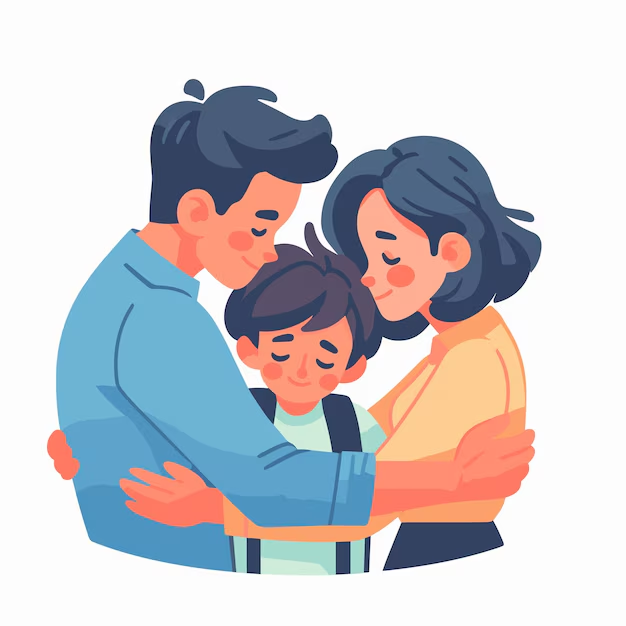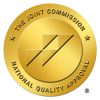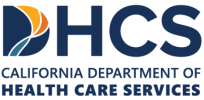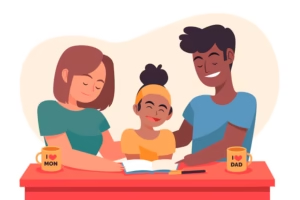A Parent’s Deepest Fear—and a Response of Hope
It can feel unbearable to watch your child in distress—withdrawn, overwhelmed, or struggling to find their footing. But you’re not alone—and, as parents, you can take steps right now to make a meaningful difference.
According to the CDC, there were 49,266 suicides among individuals aged 12 and older in 2023 (CDC). Most tellingly, suicide is the second leading cause of death for youth ages 10–14, 15–24, and 25–34 (CDC).
This September—Suicide Prevention Month—is a vital reminder that awareness, early intervention, and compassionate support can prevent tragedy.
Why Suicide Prevention Month Matters
Suicide doesn’t happen in isolation—its impact extends through families, schools, and communities. Many teens who struggle show warning signs, but those signs are often misinterpreted as “just teenage moodiness.”
By educating yourself and taking action during Suicide Prevention Month—and beyond—you’re aligning with a national movement focused on prevention and hope.
Warning Signs Parents Shouldn’t Overlook
Keep an eye out for behavioral, emotional, and verbal cues that may hint at deeper distress:
- Withdrawal from friends, family, and activities they once enjoyed
- Significant changes in sleep or appetite
- Expressions of hopelessness, being a burden, or wanting to disappear
- Giving away prized belongings or unexpected “goodbyes”
- Heightened irritability, mood swings, or risk-taking behaviors
- A sudden drop in school performance or frequent absences
- Signs of self-harm (cutting, burning, reckless behaviors)
Red flag: If your child talks about wanting to die, has a plan, or displays sudden calm after persistent sadness—take it seriously and seek help immediately.

How to Start the Conversation
Talking about suicide can be hard—but not talking can be far more dangerous.
Research shows that asking about suicidal thoughts doesn’t plant the idea—it opens the door to healing.
Try this conversation starter:
“I’ve noticed you’ve seemed really down lately, and I care about how you’re feeling. Can we talk about what’s going on?”
- Choose a calm, private moment (like a walk or car ride)
- Use empathetic “I” statements
- Listen more than you speak—validation matters
- Avoid judgment or dismissive phrases (“It’s just a phase”)
- Offer reassurance that help and hope are possible
Practical Steps You Can Take Right Now
Here’s how to build immediate safety and long-term stability:
- Encourage professional support. This could mean a therapist, school counselor, pediatrician, or treatment programs like IOP/OP.
- Create a safety plan together. Include triggers, coping activities, trusted contacts, and crisis resources.
- Remove immediate risks. Secure medications, lock away firearms or other hazards.
- Strengthen protective factors. Support healthy sleep, physical activity, and social connection.
- Stay available. Simple daily check-ins matter more than perfection.
Save crisis resources:
- Dial 988 (National Suicide Prevention Lifeline)
- Text HOME to 741741 (Crisis Text Line)
When to Seek Help Immediately
These are critical signs that your child needs urgent support:
- Verbalizing suicidal thoughts or intent
- Having a plan or the means to act
- A previous attempt or history of self-harm
- Unexpected calm after long-term sadness—it could mean decisions have been made
Take action now—call 988 or head to the nearest emergency department.
Joint Commission Accreditation, DHCS License,
& Clinical Partnership with CPCMG
Joint Commission Accreditation, DHCS License, & Clinical Partnership with CPCMG




In Clinical Partnership With
PRI Treatment Center is proud to clinically partner with Children’s Primary Care Medical Group San Diego to expand access to high-quality mental health services. Together, we’re bridging the gap between primary care and mental health to better support the well-being of children and families in our shared community.
How PRI Treatment Center Supports You and Your Family
At Protected Roots Integrative Treatment Center (PRI), we specialize in supporting adolescents and young adults on their journey to healing—alongside their families. Our compassionate, evidence-based programs include:
- Tailored PHP/IOP/OP programs designed for youth development
- Family involvement and support, because healing happens together
- Clinical services grounded in CBT, DBT, trauma-informed practices
- Culturally responsive, inclusive care that affirms all backgrounds and identities
- Flexible in-person services in La Jolla and virtual options for accessibility
You don’t have to walk this path alone. Asking for help is a powerful act of care and courage.
Call PRI Treatment Center today or verify your insurance benefits to see if a PHP program is the right next step for your family.
Frequently Asked Questions
What are the warning signs of suicide in teens?
Warning signs include withdrawal, changes in sleep or appetite, expressions of hopelessness, giving away belongings, and self-harm behaviors. Take direct expressions of suicidal thinking seriously.
How should parents talk to their child about suicide?
Choose a calm moment, use "I" statements, listen without judgment, avoid minimizing feelings, and reassure them that help is available.
When should parents seek professional help for a suicidal child?
Seek immediate help if your child talks about suicide, has a plan, or shows sudden calm after prolonged sadness. Call 988 or go to the emergency department.
Does talking about suicide increase the risk?
No. Research shows that asking about suicidal thoughts doesn’t increase risk—it can reduce stigma and open the door to support.
Trusted Resources for Parents
- 988 Lifeline – Call or text for immediate support
- Crisis Text Line – Text HOME to 741741
- NAMI Family Support – For ongoing guidance and community (https://nami.org)
- PRI Treatment Center Contact – Connect with an intake specialist on our site
Key Takeaways for Parents
- Recognize warning signs — changes in mood, behavior, or talk of hopelessness may signal risk.
- Start the conversation — asking about suicide shows care and opens the door to support.
- Take action early — create a safety plan, remove immediate risks, and seek professional help.
- Know crisis resources — dial 988 or text HOME to 741741 if your child is in immediate danger.

Dr. Warter received his doctorate in Clinical Psychology from The Wright Institute in Berkely, California, completed his Predoctoral Internship at USC’s Children’s Hospital Los Angeles, and was a Postdoctoral Researcher at USC’s Institute for Integrative Health and Wellness. Dr. Warter has also been trained at UCSF School of Medicine, Kaiser Permanente, and in community clinics in rural, underserved communities in Argentina and Paraguay. Dr. Warter has received training in providing parents with guidelines to help prevent behavior problems and enhance communication skills and strategies to promote children’s social, emotional, and academic competence. Dr. Warter has also published and presented at the University of Naples and the University of Buenos Aires on subjects related to Third Culture Kids and the impacts of Social Media on Personality and Self Esteem.








